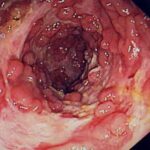Indications
-
Autoimmunity
-
Allergic Disorders
-
Cancers
-
Anti-ageing
Autoimmunity refers to the failure of an organism to recognise its own constituent parts as self, which causes the immune response against its own cells or tissues, i.e. our immune system mistakenly attacks our body’s healthy organs and tissues as if they are foreign invaders.
Example of autoimmune disorder includes Insulin Dependent Diabetes Mellitus (IDDM), Rheumatoid Arthritis and Systemic Lupus Erythematosus (SLE).
- Psoriasis is a chronic, autoimmune disease that appears on the skin. It occurs when the immune system sends out faulty signals that speed up the growth cycle of skin cells. It commonly causes red, scaly patches to appear on the skin. The scaly patches called psoriatic plaques, are areas of inflammation and excessive skin production. Skin rapidly accumulates at these sites and is silvery-white in appearance. It frequently occurs on the skin of the elbows and knees, but can affect any area including the scalp, palms of hands and soles of feet, and genitals. Psoriasis is more likely to be found on the extensor aspect of the joint.
- Polyarthritis is any type of arthritis which involves five or more joints — an inflammation of two, three or four joints is an oligoarthritis. Polyarthritis is most often caused by an auto-immune disorder such as Rheumatoid arthritis, Psoriatic arthritis, and Lupus erythematosus but can also be caused by infection with an alphavirus such as Chikungunya Virus and Ross River Virus. This condition is termed Alphavirus Polyarthritis Syndrome. Sindbis Virus, which is endemic in Northern Europe, Africa, the Middle East, and Australia, is the most widely distributed of the alphaviruses causing polyarthritis, though infection is usually mild or asymptomatic.
- Colitis refers to an inflammation of the colon and is often used to describe an inflammation of the large intestine (colon, cecum and rectum). Colitides may be acute and self-limited or chronic, i.e. persistent, and broadly fit into the category of digestive diseases.
- Crohn’s Disease is an inflammatory disease of the intestines that may affect any part of the gastrointestinal tract from mouth to anus, causing a wide variety of symptoms. It primarily causes abdominal pain, diarrhea (which may be bloody), vomiting, or weight loss, but may also cause complications outside of the gastrointestinal tract such as skin rashes, arthritis, inflammation of the eye, tiredness, and lack of concentration.
- Rheumatoid arthritis (RA) is a chronic, systemic inflammatory disorder that may affect many tissues and organs, but principally attacks synovial joints. The process produces an inflammatory response of the synovium (synovitis) secondary to hyperplasia of synovial cells, excess synovial fluid, and the development of pannus in the synovium. The pathology of the disease process often leads to the destruction of articular cartilage and ankylosis of the joints.
- Hypothyroidism is the disease state in humans and in vertebrates caused by insufficient production of thyroid hormones by the thyroid gland. Cretinism is a form of hypothyroidism found in infants.
Allergic disorder occurs when the immune system overreacts after exposure to antigens, usually the surrounding environment.
Examples of such disorders include asthma, eczema or specific allergies which include environmental allergies (e.g. dust mites), drug allergies (e.g. specific medications), seasonal allergies (e.g. hay fever), food allergies (e.g. nuts).
- Allergic Sinusitis is inflammation of the paranasal sinuses, which may be due to infection, allergy or autoimmune issues. Most cases are due to a viral infection and are resolved over the course of 10 days.
- Rhinitis commonly known as a stuffy nose, is the medical term describing irritation and inflammation of some internal areas of the nose. The primary symptom of rhinitis is nasal dripping. It is caused by chronic or acute inflammation of the mucous membrane of the nose due to viruses, bacteria or irritants. The inflammation results in the generating of excessive amounts of mucus, commonly producing the aforementioned runny nose, as well as nasal congestion and post-nasal drip.
commonly known as a stuffy nose, is the medical term describing irritation and inflammation of some internal areas of the nose. The primary symptom of rhinitis is nasal dripping. It is caused by chronic or acute inflammation of the mucous membrane of the nose due to viruses, bacteria or irritants. The inflammation results in the generating of excessive amounts of mucus, commonly producing the aforementioned runny nose, as well as nasal congestion and post-nasal drip.
- Asthma is a common chronic inflammatory disease of the airways characterized by variable and recurring symptoms, airflow obstruction, and bronchospasm. Symptoms include wheezing, cough, chest tightness, and shortness of breath.
- Eczema is a form of dermatitis, or inflammation of the epidermis (the outer layer of the skin) and is broadly applied to a range of persistent skin conditions. These include dryness and recurring skin rashes that are characterized by one or more of these symptoms: redness, skin edema (swelling), itching and dryness, crusting, flaking, blistering, cracking, oozing, or bleeding. Areas of temporary skin discoloration may appear and are sometimes due to healed lesions. Scratching open a healing lesion may result in scarring and may enlarge the rash. In contrast to psoriasis, eczema is often likely to be found on the flexor aspect of joints.
Ageing is accompanied by a reduction in immune response, an increase in the inflammatory and oxidation background, and a production of autoantibodies. The incidence of autoantibodies has proven to be increased with age, and it is believed to contribute to the decreased response to foreign antigens and increased response to self-antigens. ASI therapy promotes anti-ageing by modulating the immune system, enhancing immune response to antigens and protecting against infectious diseases.




























